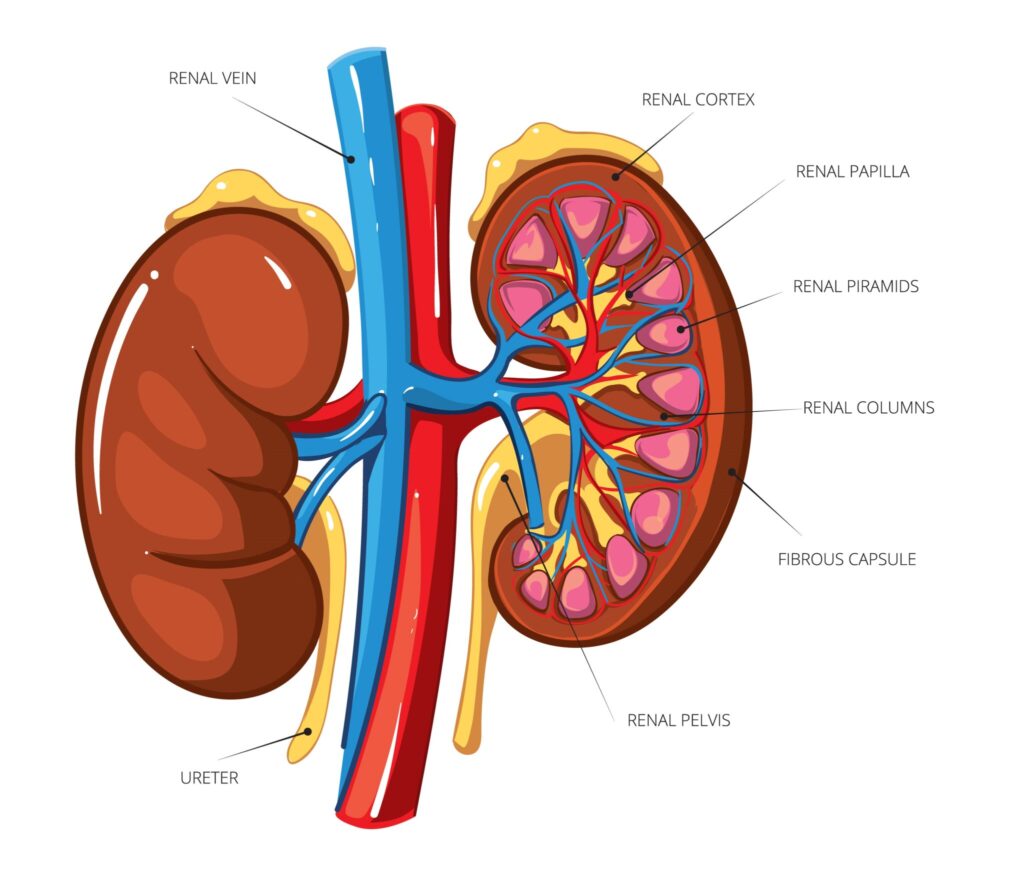Preventive Nephrology

Normal Function of Kidney
Preventive Nephrology Is Like A Superhero In The World Of Medicine, Working Tirelessly To Prevent The Development Or Worsening Of Kidney Disease.
- Preventive Nephrology Aims To Keep Kidneys Healthy By Identifying And Managing Risk Factors For Kidney Disease
- Screening High-Risk Groups (E.G. Those With Diabetes Or High Blood Pressure) Is Done To Catch Early Signs Of Kidney Disease And Intervene To Slow Its Progression.
- Preventive Nephrology Can Improve Quality Of Life For Those With Kidney Disease And Reduce Healthcare Costs Associated With Managing The Condition
- Educating Patients On Healthy Lifestyle Choices, Such As A Healthy Diet, Regular Exercise, And Not Smoking, Can Reduce The Burden Of Risk Factors On Kidney Health
- Monitoring And Managing Underlying Medical Conditions That Contribute To Kidney Disease Can Help Reduce The Risk Of Kidney Disease
- Identifying And Managing Medication Side Effects That Can Harm The Kidneys Is Important In Preventing Kidney Damage
- A Personalized Approach Tailored To Each Patient's Individual Needs Is Taken To Promote Kidney Health And Prevent Kidney Disease From Developing Or Getting Worse.
- Support Is Provided For Those With Chronic Kidney Disease Through Interventions Such As Dietary Modifications And Medication Management To Prevent Progression Of The Condition
Symptoms Of Preventive Nephrology
- It does not have specific symptoms as its goal is to prevent symptoms from occurring.
- People who may benefit from preventive nephrology include those with a family history of kidney disease, who are overweight or obese, have high blood pressure or diabetes, or take medications that may harm kidney function.
- High-risk individuals can benefit from screening and interventions provided by preventive nephrology to help reduce their risk of developing kidney disease.

Who Should Consider Kidney Disease Testing?
Kidney disease is a serious health issue that affects many people.To ensure early detection and treatment, certain groups of people should be tested for kidney disease.

Individuals with high blood pressure
High blood pressure can damage the blood vessels in the kidneys and lead to kidney disease. Regular kidney function tests may be recommended for those with high blood pressure.

Individuals with diabetes
High blood pressure can damage the blood vessels in the kidneys and lead to kidney disease. Regular kidney function tests may be recommended for those with high blood pressure.

Individuals with high blood pressure
High blood pressure can damage the blood vessels in the kidneys and lead to kidney disease. Regular kidney function tests may be recommended for those with high blood pressure.

Individuals with high blood pressure
High blood pressure can damage the blood vessels in the kidneys and lead to kidney disease. Regular kidney function tests may be recommended for those with high blood pressure.

Individuals with diabetes
High blood pressure can damage the blood vessels in the kidneys and lead to kidney disease. Regular kidney function tests may be recommended for those with high blood pressure.

